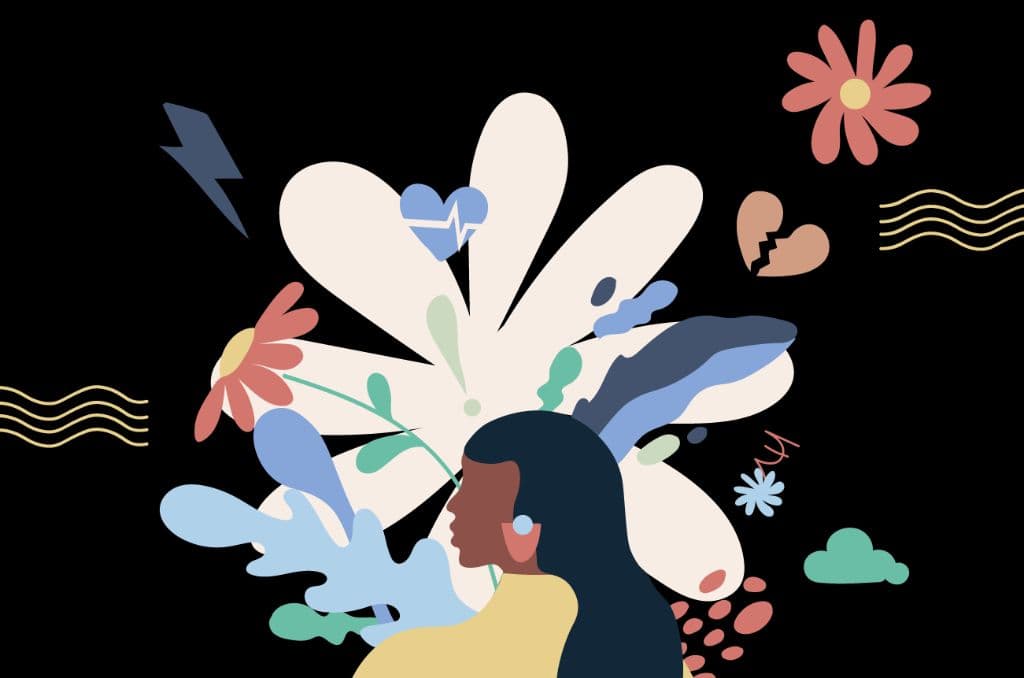Depression has become a familiar, household name. It pops up in conversations, it is played out in movies, novels revolve around this theme. And still, the experience of it remains evasive. We can almost understand it, can feel the despair of someone’s pervasive sadness, can see them being dragged down but it still remains out of our grasp. Those who do struggle with depression are almost always unable to explain the melancholy nature of it. Sure they can point to the blues, to the inability of being able to do anything, but the true darkness of it remains indescribable. Even though we use the term depression commonly, we are far from putting individual experiences into words.
When we take this kind of disorder and import it into a society where mental illness is equated with weakness, or with some defect, we are left with a decoction that is detrimental and regressive. Society is, to a degree, kinder towards women struggling with depression for many patriarchal reasons for a women’s mind being perceived ‘weak’! Men, thus, unsurprisingly have a tough time accepting and acknowledging their depression and communicating it to others. The 'Boys Are Tough' trope doesn’t allow us to be kind towards uncomfortable emotions of sadness and despair. They are either taught to shrug it off and ‘be a man’ or take inspiration from countless poets and writers who have successfully converted their angst into great literature. But we are never actually taught to feel that sadness, to be unperturbed, and to eventually accept that tough men sometimes need help too.

Another notable link here is how depression is felt and experienced by men. Research indicates that men are more likely to notice physical discomfort such as headaches, back pain, difficulty in falling asleep. Another way in which depression manifests among men is through anger and reckless behavior. Anger is an inability to deal with criticism, irritability, losing temper, violence. Men are prone to engaging in risky behaviors and abuse of drugs becomes an escape from intense pain and emotions. A consequence of depression that is perhaps overlooked is problems in sexual life. Depression makes us intolerable towards activities that we might have previously enjoyed, and this includes engaging in sexual activity too. Although sex is equated with reproductive organs, our brains are actually pretty sexual as well. The desire begins in the brain and then finds its way down. But when the neurotransmitters in the brain aren’t hyped up, it can cause dysfunction leading to sexual problems. And when a man struggles with his sexual desires, it starts the vicious cycle of guilt, self-doubt, and worthlessness. It is also important to note that anti-depressants can cause sexual problems such as reduced interest, erectile dysfunction, delayed or inhibited ejaculation. The cruel and unfair consequences of depression and its treatment can lead to various sexual problems that have contributed to the increase in the rate of infertility among men.
Depression, whether in men or in women, has a similar trajectory. And with minor modifications, the treatment protocol is similar too. While the individual circumstances that exacerbate or maintain depression vary, it remains irrefutable that there remains hope. The way we break this stigma is by talking about mental health, by normalizing it.
Disclaimer : This information is educational and should not be construed as medical advice. Please consult your doctor before making any dietary changes or adding supplements.
ProactiveForHer is a digital clinic for women, offering accessible, personalised, and confidential healthcare solutions. We offer out-patient care, diagnostic services and programs for various health concerns of Indian women, across their lifetime - from puberty to pregnancy to menopause.

